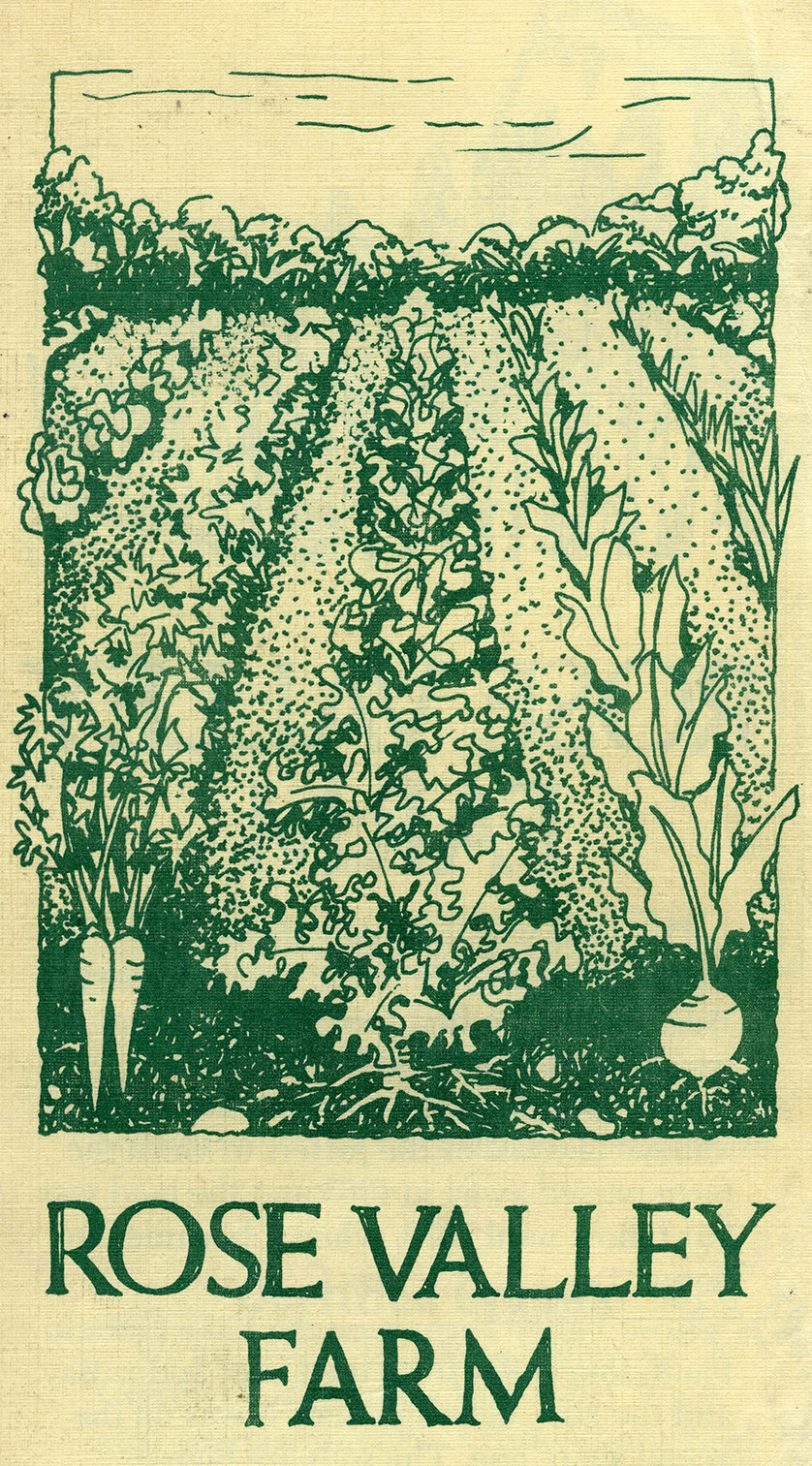Background on Elizabeth Henderson

Brochure for Rose Valley Farm
Activist, educator, farmer, Elizabeth Henderson is perhaps best known for her contributions to the movement for organic and sustainable agriculture. Henderson's first foray into farming was at Unadilla Farm in Gill, Massachusetts. In 1979 she and a group of friends purchased 65 acres of land and almost immediately began the process of relocating their lives to the countryside. Over a period of two years Henderson tied up loose ends at Boston University where she was a professor of Russian literature and culture, and an instructor in the university's Prison Education Program. Through the program Henderson taught inmates at Norfolk, a correctional institution in the Boston area; work she found both meaningful and rewarding. After leaving her position at BU, she applied for a job at Beacon College. The school, which was nontraditional and had no campus, assigned students to Program Advisors who created curricula and matched the students with tutors; students and tutors then communicated via letters and written worksheets. Henderson was hired as a Program Advisor, an ideal position for her because it allowed her to work flexible hours.
While she was getting settled at Beacon College, Henderson was also easing into an entirely new lifestyle at Unadilla. The land did not come with even the basics necessities, such as plumbing, electricity, or housing, so the landowners' first priority was to make the farm habitable. For months they slept in tents while constructing their house (which they incorporated into a hillside), a barn, and a greenhouse. When the plumbing was installed and the floors finished, the real work began. During the construction process, the farmers began cultivating the land, but they were now able to devote the majority of their time to farming. Unadilla was to be a place for likeminded people to gather and trade information, ideas, and tips on farming. It was what the group referred to as a "skills exchange" farm--the learning experience was the most valuable commodity they offered. They farmed on only 15 of the 65 acres, as the rest was covered in brush, although they had plans to make more land available by clearing it in the future. Most of the crops gathered during the growing season was for the farmers themselves, but the little extra they had was sold to neighbors and local businesses.
In 1988, Henderson left Unadilla to accept a position in New York on Rose Valley Farm. She partnered up with David Stern who had been managing Rose Valley organically since 1979. Together they worked 25 acres out of 60 acres. The farm had been certified organic by NOFA in 1986, and in 1995 they started the process of becoming a Community Supported Agriculture (CSA) organization. They mainly supplied produce to the Genesee Valley Organic Community Supported Agriculture (GVOCSA) program, but they also provided local stores and restaurants with fresh vegetables. During the winter when the farm work was reduced, Liz taught and wrote. Henderson eventually published two books: Sharing the Harvest: A Citizen's Guide to Community Supported Agriculture and Whole-Farm Planning: Ecological Imperatives, Personal Values, and Economics, and she edited a handful of others, including The Real Dirt: Farmers Tell about Organic and Low-Input Practices in the Northeast.
After nearly a decade at Rose Valley, Henderson embraced another new opportunity: she became a full-time farmer on land she was granted through the GVOCSA. She and her farming partner, Greg Palmer, had access to 15 acres of land which they named Peacework Organic Farm. Palmer and Henderson had a history of working together--Greg had been an apprentice at Rose Valley since 1991. Like Rose Valley, Peacework is a CSA located in New York. Community members sign up for volunteer shifts and in exchange for their labor they receive a portion of the vegetables grown that season; in addition to the shares that are allotted to individuals and families, a large percentage of the crops are set aside and go to the GVOCSA. Henderson enjoys personally knowing the people she grows for and she likes for these same people to be involved in the cultivating process. She believes it is important for people to understood what is involved in getting food from the fields to their tables. Henderson continues to operate Peacework Organic Farm.
Throughout her career in agriculture, Henderson has been deeply engaged in the organic movement at all levels. She was a founding member of the Northeast Organic Farming Association (NOFA) in Massachusetts, has served on the Board of Directors for NOFA NY, the NOFA Interstate Council, SARE (Sustainable Agriculture Research and Education) Northeast, and she made significant contributions to national discussions on organic standards, fair trade, and agricultural justice.

